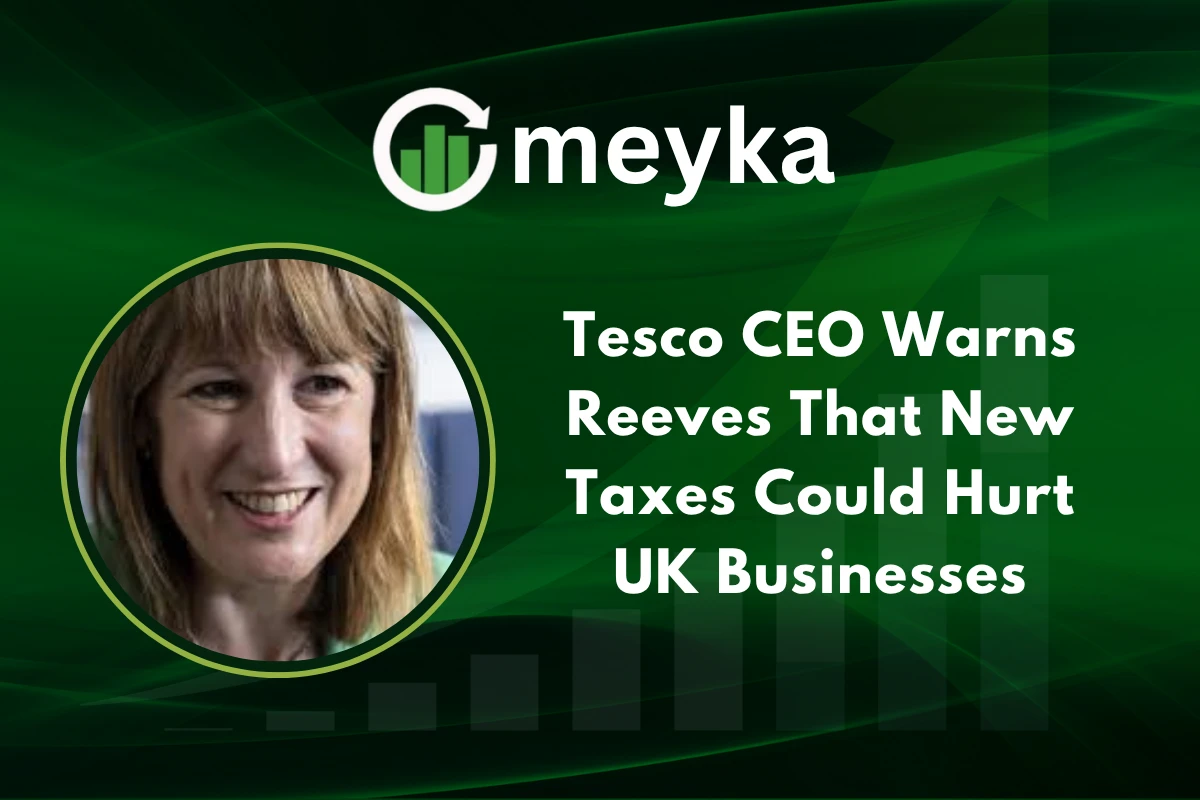Tesco CEO Warns Reeves That New Taxes Could Hurt UK Businesses
The chief executive of Tesco has publicly warned Chancellor Rachel Reeves that proposed new taxes could damage UK companies and slow recovery. Business leaders say higher levies would squeeze margins, raise prices for shoppers, and hurt growth.
Major outlets, including the BBC, the Financial Times, and Business Live, reported the comments this week, sparking fresh debate about tax policy and the retail sector’s fragile recovery.
Tesco CEO Raises Concerns Over Tax Plans
What the warning to Rachel Reeves means
Tesco’s CEO told officials that additional tax burdens would hit the retail sector hard, Business Live reported. He urged policymakers to weigh the impact on jobs and investment before moving ahead.
The concern is not only for Tesco, but for suppliers, small shops, and the wider supply chain that support millions of livelihoods across Britain.
Why is Tesco warning against new taxes? Tesco says higher taxes would reduce margins at a time when input costs and wage pressures are already high.
Why taxes could threaten retail growth
Retail is sensitive to cost shocks. Extra taxes often get passed partially to consumers, reducing spending power. That, in turn, weakens sales and can force firms to cut investment.
The Financial Times noted that companies are watching policy shifts closely, because tax changes can change hiring and price strategies almost immediately.
How New Taxes Could Affect Tesco and UK Retail
Pressure on margins and operating costs
Tesco operates on relatively thin margins. Any new levy, whether targeted or broad, adds to operating costs. That squeezes profit per sale and can force trade-offs: lower investment, higher prices, or cost-cutting that may affect staff and service levels. Analysts told the BBC that retail margins are already under pressure from inflation and supply-chain costs.
Will Tesco raise prices if taxes increase? If taxes reduce margins, some of the cost will likely be passed to consumers, though Tesco may absorb part to stay competitive.
Impact on prices and consumer spending
Higher prices reduce discretionary spending. The Times discussed how a shop’s price rises ripple through household budgets and may dampen overall retail demand.
That is the cycle Tesco’s leadership wants Reeves to consider: tax changes can have immediate effects on consumer confidence and spending patterns.
Tesco’s Current Performance and Market Position
Recent profit outlook and Christmas sales forecast
Tesco remains one of the UK’s dominant grocers. Recent press coverage highlighted the group’s profit outlook and holiday-season expectations, showing the company still relies on strong sales in key quarters to hit yearly targets. The Times and Yahoo Finance ran analyses about margins and festive trading as major drivers of annual results.
How Tesco compares with other UK grocers
Compared with rivals, Tesco has scale, buying power, and a wide store network. That helps manage price competition, but it does not fully shield the firm from policy shocks. Smaller grocers and suppliers may feel any tax changes more acutely, potentially reshaping the competitive landscape in ways that could hit choice and local jobs.
Political and Economic Context of Tesco’s Warning
The government’s economic plan under Rachel Reeves
Chancellor Reeves is balancing fiscal priorities: boosting growth, funding public services, and managing debt. Her office has proposed measures intended to raise revenues, the BBC noted, while saying they will protect growth. Business leaders now call for clearer impact assessments and targeted measures that avoid widespread harm.
Why is the government moving on taxes now? Officials argue revenue is needed for public services and investment. Business leaders want careful design to avoid harming growth.
Reaction from business groups and analysts
Trade bodies and analysts echoed Tesco’s caution, urging the government to consult widely. Business Live and the Financial Times reported that chambers of commerce and retail groups want phased approaches or exemptions for vulnerable sectors.
The debate is shaping up as a key early test for the government’s pro-business credentials.
Social Media and Public Reaction to Tesco’s Statement
Tweets and grassroots business concerns
On social media, reactions were swift. A post by @CutMyTaxUK highlighted small-business worries and urged faster government action to reduce tax burdens.
Online conversations revealed a mix of support for the government’s social aims and concern about unintended harm to jobs and local shops.
Are people siding with Tesco or with tax reform? Public opinion is mixed; many support investment in services, but also worry about job losses and price rises.
The Future of Tesco in a Changing UK Economy
Risks for retail giants in policy shifts
A tax regime that fails to account for retail dynamics risks slowing investment in stores, wages, and local supply chains. Tesco faces risks if policy tightens without compensating measures or targeted relief. The Times and FT both warned that policy errors could erode investment incentives.
Long-term outlook for Tesco and UK businesses
Tesco’s plea is a warning shot: business needs predictability to invest. For long-term growth, clarity on taxation, support for productivity, and measures that sustain consumer buying power will matter most.
If Reeves and the Treasury can show a pathway that balances revenue needs with growth protection, it may calm markets and shore up corporate investment. Otherwise, the retail sector could see more caution in hiring and expansion plans.
Conclusion
Tesco has stepped into a high-stakes policy debate, telling Chancellor Rachel Reeves that new taxes could carry real costs for UK businesses, jobs, and consumers.
The company’s warning, reported by major outlets including the BBC, Financial Times, Business Live, The Times, and Yahoo Finance, is part of a wider chorus asking for careful policy design.
For Reeves, the message is clear: tax policy must be balanced, transparent, and tested against its likely effects on firms that power Britain’s high streets and supply chains.
The coming weeks will test whether the government and business can find a path that funds public priorities without choking growth.
FAQ’S
Tesco’s CEO has warned that new taxes could increase operating costs for retailers, which may reduce profits and limit business growth.
Higher business taxes often lead to increased prices in supermarkets. This means Tesco customers could see rising grocery bills in the coming months.
Tesco remains profitable, but the company has highlighted risks from inflation, higher wages, and government tax policies impacting long-term growth.
Tesco leads the UK grocery market, ahead of rivals like Sainsbury’s and Asda, but faces strong competition from discount chains Aldi and Lidl.
Tesco is the UK’s largest retailer, employing over 300,000 people, and its performance has a direct impact on consumer spending and the retail sector.
Dislcaimer
This content is made for learning only. It is not meant to give financial advice. Always check the facts yourself. Financial decisions need detailed research.






